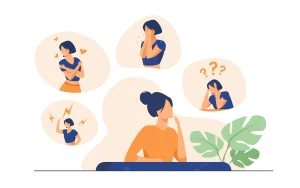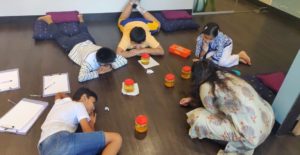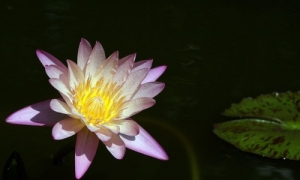
Dealing with Anger Mindfully
Have you ever gotten angry at your parents for not letting you go out with your friends? Or on your friends itself, for not listening

Have you ever gotten angry at your parents for not letting you go out with your friends? Or on your friends itself, for not listening

What Does it Mean to ‘Feel’? Our feelings are responsible for making sense of our experiences in life. They help us survive, form and maintain

On World Hypertension day, here is our sharing on how stress leads to hypertension and what you can do on a daily basis to directly

Often children find it difficult to manage the flood of thoughts and emotions that they experience while coping with a difficult situation or even while

Wouldn’t it be wonderful if our children could experience full joy while eating an ice-cream or while doing an activity they love, instead of burning

Many of us encounter moments in life where forgiveness feels impossible. We might hold onto contempt or resentment towards someone, struggling to understand their actions

Often just like any other skill, once people start meditating they try to master meditation. They want to excel at it. They imagine themselves becoming quiet

Your senses are your window to the world; you experience life through your senses. Yet, in your everyday routine, you remain busy in trying to make meaning of whatever you see, hear, smell, taste and touch. This is necessary and an essential part of survival! However, if you think about it, every sensory experience is so rich on its own.
Keeping this in mind, this blog describes a mindfulness exercise that involves paying attention to one sense at a time.

When you are upset, tired or stressed, it becomes difficult to focus at work. You are more vulnerable to distractions and everything takes twice as long to do.
“I have been going through a difficult time since the past couple of days. I am shifting to a new house and there are soooo many things to take care of. It is very stressful and it is creating a tense family atmosphere as well. There are projects to finish at work but I find my mind drifting to these problems. It is becoming really difficult to concentrate at my job. My personal problems are starting to get the better of me. It’s affecting my work now! I don’t know what to do about it…”
– Mr.K.L, Senior Manager.
“It’s affecting my work.” Most of us have used this line at some time; generally, when something is going wrong in our personal life and it is starting to affect our productivity at work. It could be a fight with a friend. A neighbour who is causing you unnecessary trouble. Or like Mr. K.L, a tense family environment.
We feel stressed and our mind seems in disarray. It becomes difficult to focus on the task at hand. You don’t feel like working and you struggle to make it through the day.

Imagine you are a ship. On a voyage. Swayed by gentle breeze or choppy waves everyday. You feel pulled back or pushed ahead. At times, you find it difficult to stay on course. Wouldn’t you want to have an anchor, to keep you steady?
If the ship is your mind, the breeze and waves are your thoughts which take you to the past and future… but what is the anchor??
The anchor is something that is with you all the time – it is the ‘present’
Discovering the Present through Mindfulness
Mindfulness means paying attention to the present, completely and fully. It is a moment-to-moment awareness of one’s experience, be it of what you see/hear/smell, or your breath or even your thoughts.

We specialize in combining psychotherapy with deep wellness practices like mindfulness and meditation and creating a customized mental health plan for individuals and organisations.
We specialize in combining psychotherapy with deep wellness practices like mindfulness and meditation and creating a customized mental health plan for individuals and organisations.

A young woman from another country moved with her family to live for one year in a town near the monastery. When, in the course of the year she discovered the monastery, she would periodically visit to have discussions with the Abbess. The Abbess introduced her to meditation, which became very meaningful for the young woman.
When the family’s year-long stay was drawing to an end, the young woman asked the Abbess, “In my country there is no Buddhism and no one has even heard about meditation. How can I continue to learn and deepen the practice you have started me on?”
The Abbess said, “When you return home ask far and wide for who, among the wise people, is recognized as having the greatest ability to listen. Ask that person to instruct you in the art of listening. What you learn about listening from such a person will teach you how to further your meditation practice.
― Gil Fronsdal, A Monastery Within: Tales from the Buddhist Path